Some places just stick with you long after you’ve left. While most folks plan trips around museums, beaches, or historic landmarks, there’s something uniquely powerful about experiencing a stadium packed with passionate fans. These aren’t just concrete structures — they’re cultural heartbeats where entire cities come alive.
Whether you’re a die-hard sports fan or simply love soaking up local culture, certain stadiums offer experiences that go way beyond the game itself. Here is a list of 17 stadiums around the world that should definitely make it onto your travel bucket list.
Maracanã Stadium
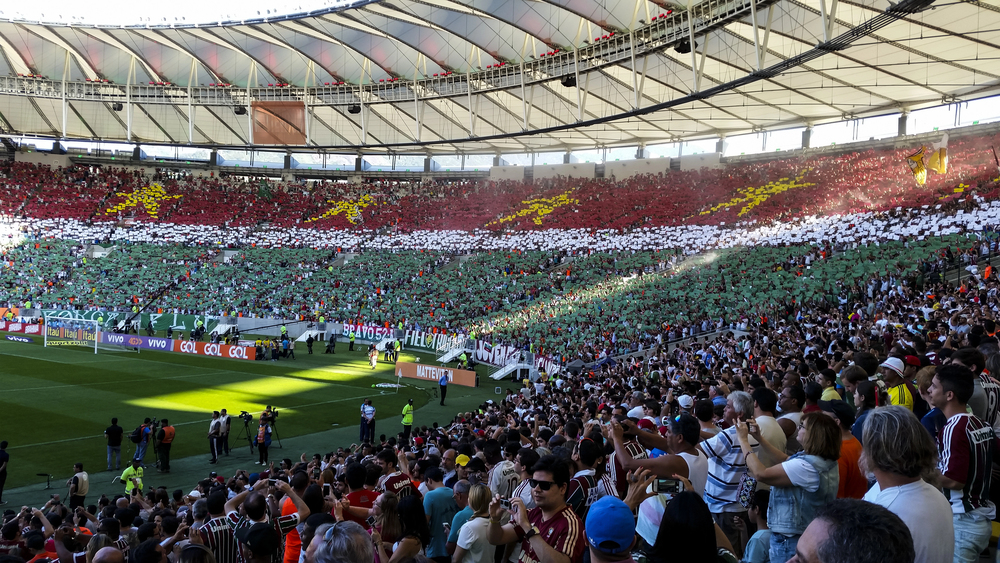
— Photo by Ranimiro
Rio de Janeiro’s Maracanã isn’t just a stadium — it’s practically a religious site for soccer lovers. This massive venue once held nearly 200,000 screaming fans, though it’s been scaled back to a more manageable 78,000 seats. The energy here during a Brazil match feels like the entire country is vibrating with excitement. Even if you’re not normally into soccer, watching a game here will probably convert you into at least appreciating why the rest of the world calls it ‘the beautiful game.’
Wembley Stadium
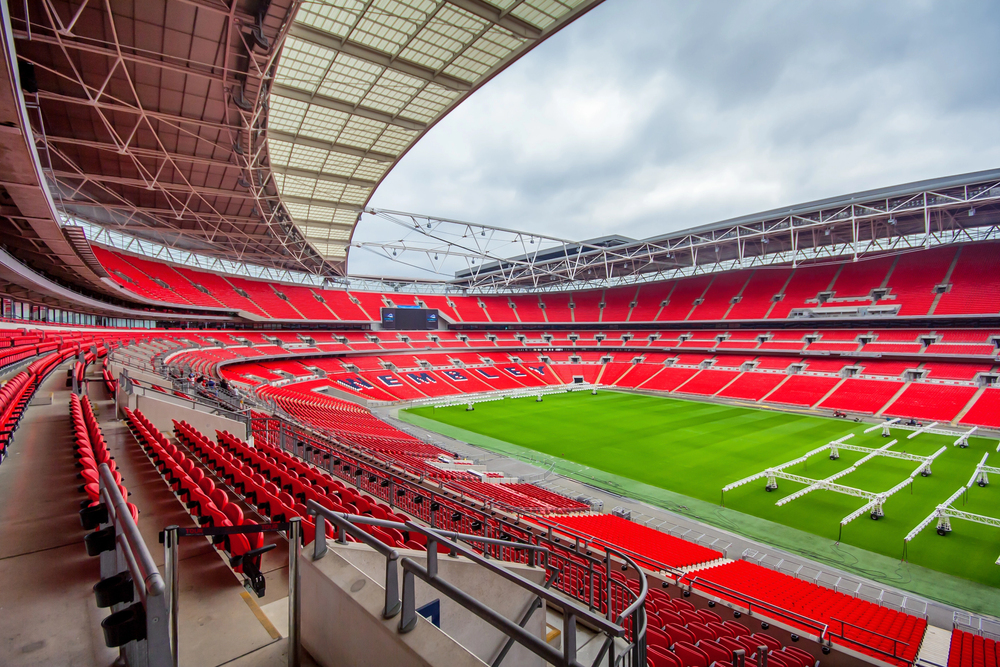
— Photo by andyb1126
London’s Wembley stands like a modern cathedral with its iconic arch stretching 436 feet above the pitch. This isn’t the original Wembley where England won the 1966 World Cup, but the new version captures that same magic while adding serious luxury. The venue hosts everything from Premier League finals to major concerts, making it a year-round destination. Walking up those famous steps to collect a trophy has been the dream of English athletes for generations.
Camp Nou

— Photo by mbonaparte
Barcelona’s Camp Nou feels more like a small city than a stadium, seating nearly 100,000 people who treat every match like a festival. The atmosphere here goes beyond just cheering — it’s a full cultural experience where fans wave flags, sing traditional songs, and create choreographed displays that look like art from above. Even during regular season games, the passion level rivals what you’d see at championship finals elsewhere. The stadium tour alone is worth the trip, giving you access to the locker rooms, tunnel, and that famous pitch where Messi worked his magic for so many years.
Fenway Park
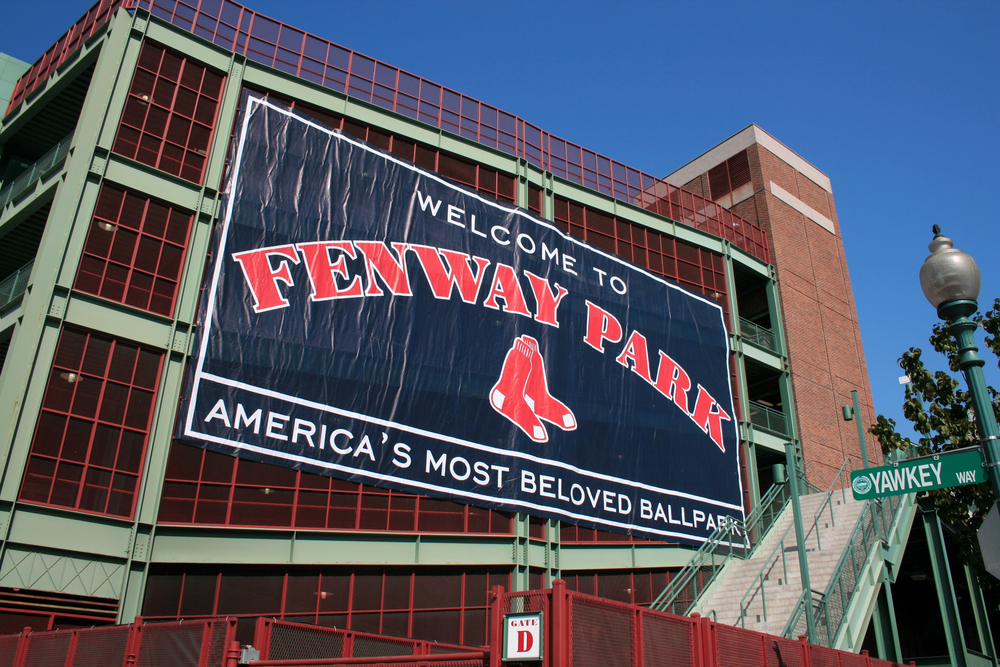
— Photo by cpenler
Boston’s Fenway Park proves that bigger isn’t always better when it comes to creating an unforgettable experience. This quirky old venue, built in 1912, feels like stepping into a time machine where baseball still has that vintage charm. The Green Monster wall in left field creates drama on every fly ball, while the hand-operated scoreboard keeps things refreshingly analog. Sure, the seats are cramped and the concourses narrow, but that just adds to the authentic, neighborhood feel that modern stadiums often lose.
Old Trafford
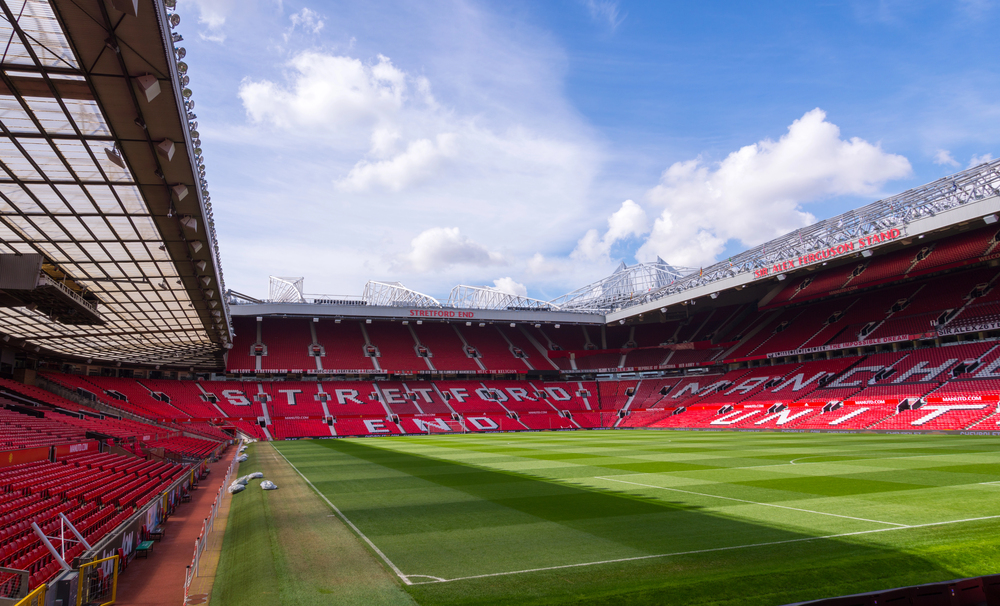
— Photo by inookphoto
Manchester United’s Old Trafford earned its nickname ‘The Theatre of Dreams’ for good reason — this place has seen more dramatic moments than a Shakespeare festival. The stadium’s red brick facade and towering stands create an intimidating fortress that visiting teams have learned to fear. On match days, the surrounding area transforms into a massive street party where fans from around the world gather hours before kickoff. The Stretford End still generates the kind of noise that can literally shake the building when United scores a crucial goal.
Madison Square Garden
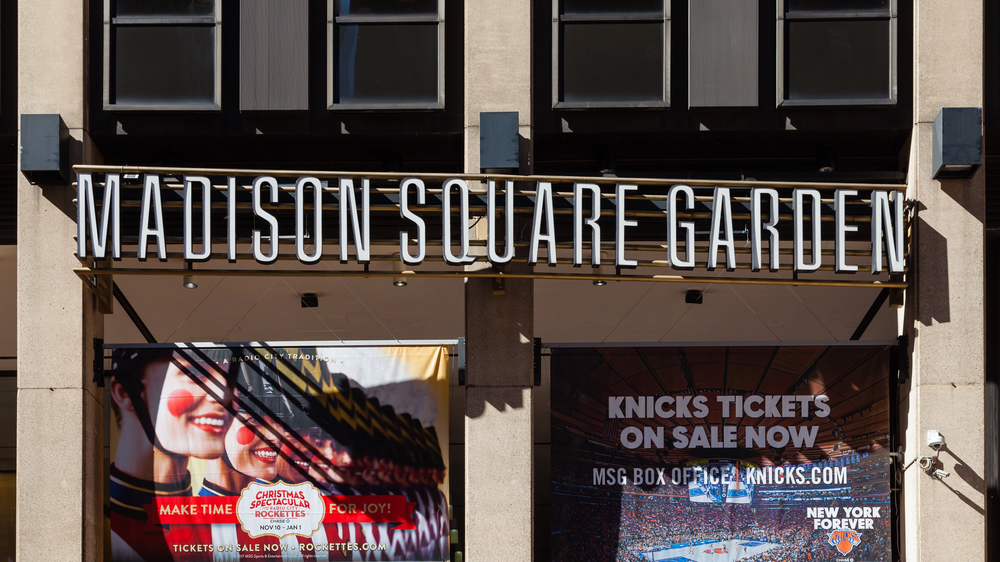
— Photo by ATGImages
New York’s Madison Square Garden sits right in the heart of Manhattan, making it the only major arena where you can grab dinner in Little Italy before watching the Knicks play. This venue has hosted everything from championship boxing matches to legendary concerts, creating an atmosphere that’s intimate yet electric, even with its 20,000-seat capacity. The steep seating design means even the cheap seats feel close to the action. Walking through the concourses, you’re surrounded by photos and memorabilia from decades of sporting and entertainment history.
Santiago Bernabéu
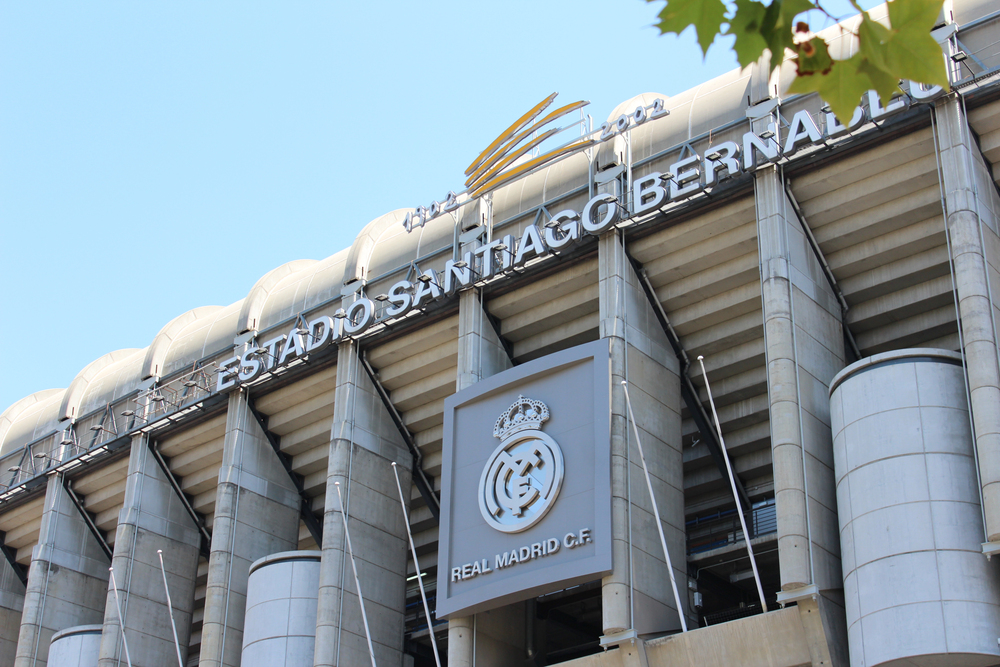
— Photo by HelenBabenko
Real Madrid’s Santiago Bernabéu recently completed a massive renovation that turned it into something resembling a spaceship more than a traditional stadium. The retractable roof and 360-degree video screen create an experience that feels like watching sports in the future. This venue has witnessed more European Cup finals and legendary performances than almost anywhere else on earth. The trophy room alone justifies the visit, displaying enough silverware to stock a small museum dedicated to soccer excellence.
La Bombonera
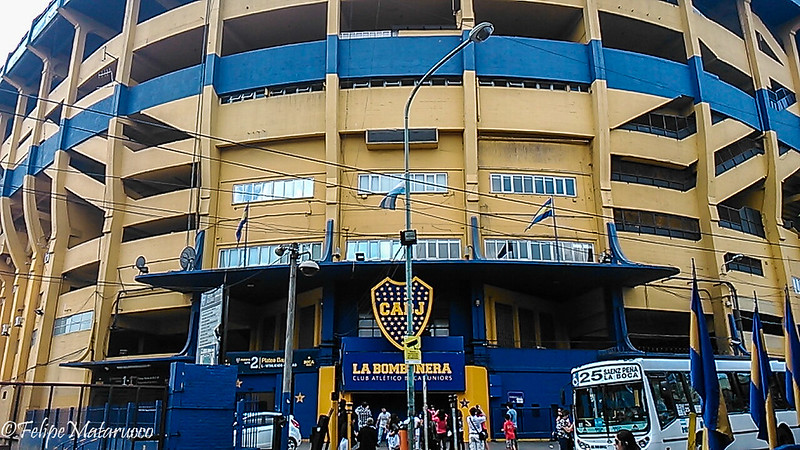
Buenos Aires’ La Bombonera gets its nickname from its candy box shape, but there’s nothing sweet about the intensity level here during a Boca Juniors match. This stadium literally bounces when fans jump in unison, creating a physical sensation that visitors often describe as earthquake-like. The steep stands place fans incredibly close to the field, making every tackle and goal feel personal. Diego Maradona once called this place home, and his presence still seems to hover over every match played here.
Bird’s Nest Stadium
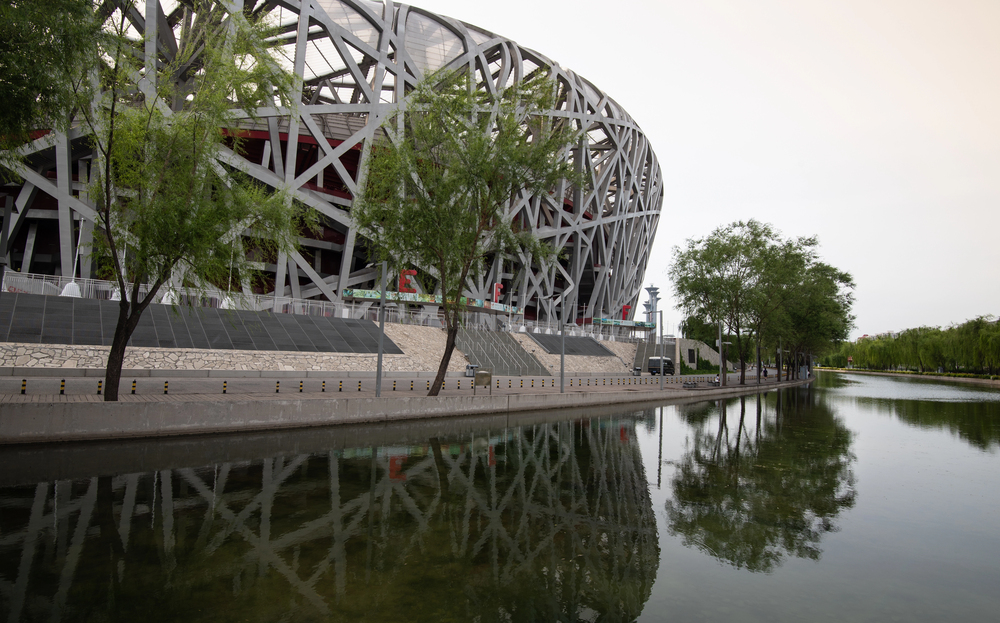
— Photo by mpalis
Beijing’s National Stadium, known as the Bird’s Nest, looks like something an alien architect might design after studying traditional Chinese art. The twisted steel exterior creates shadows that change throughout the day, making the building appear alive and breathing. This venue hosted the 2008 Olympics opening ceremony, one of the most spectacular shows ever produced for television. Even when there’s no event happening, the surrounding Olympic Park offers enough to explore for an entire day.
Lambeau Field
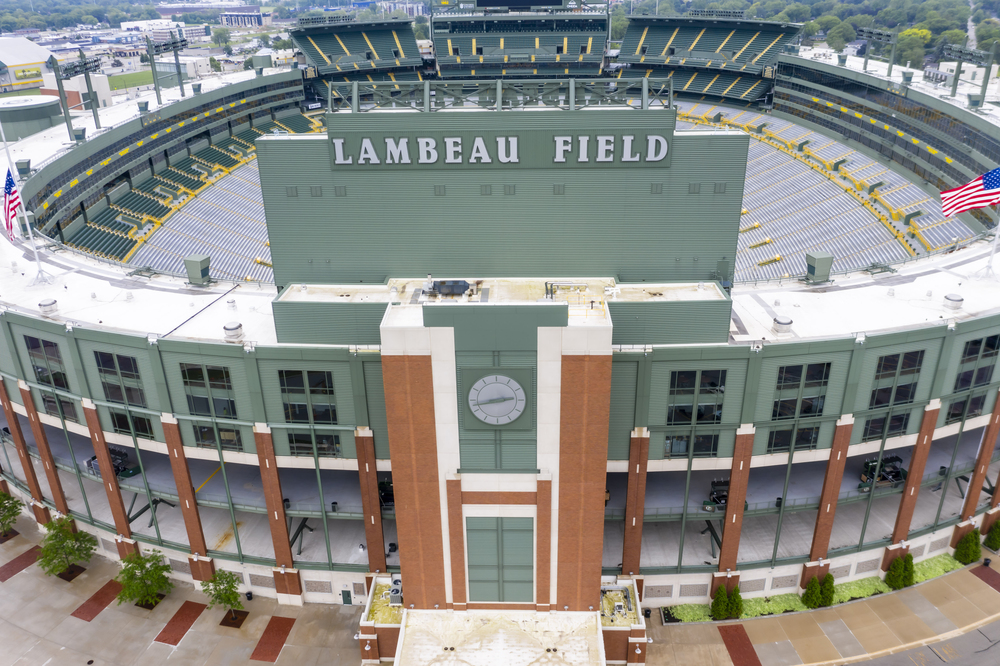
— Photo by actionsports
Green Bay’s Lambeau Field sits in the middle of Wisconsin like a shrine to American football, where fans brave sub-zero temperatures that would send most people running for the nearest fireplace. The Lambeau Leap tradition, where players jump into the stands after scoring, creates a connection between team and community that’s rare in professional sports. This place holds over 80,000 people, which is remarkable considering Green Bay’s population is barely over 100,000. The surrounding tailgate parties start at sunrise and create a festival atmosphere that rivals any county fair.
Melbourne Cricket Ground
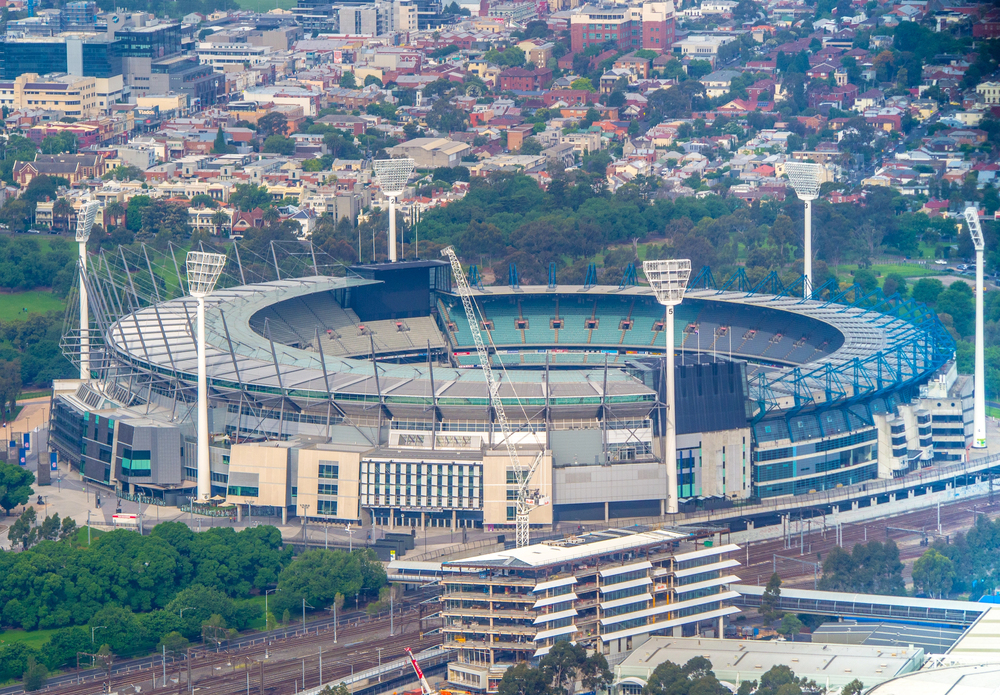
— Photo by danieldep
Melbourne’s MCG, known simply as ‘The G’ to locals, holds 100,000 people and somehow still manages to fill up regularly for Australian Football League matches. This venue hosts everything from cricket matches that last five days to AFL Grand Finals that capture the nation’s full attention. The stadium’s museum tells the story of Australian sports culture in a way that makes even non-sports fans appreciate the country’s athletic obsession. During the Boxing Day cricket test, the atmosphere feels more like a massive outdoor party than a formal sporting event.
Allianz Arena
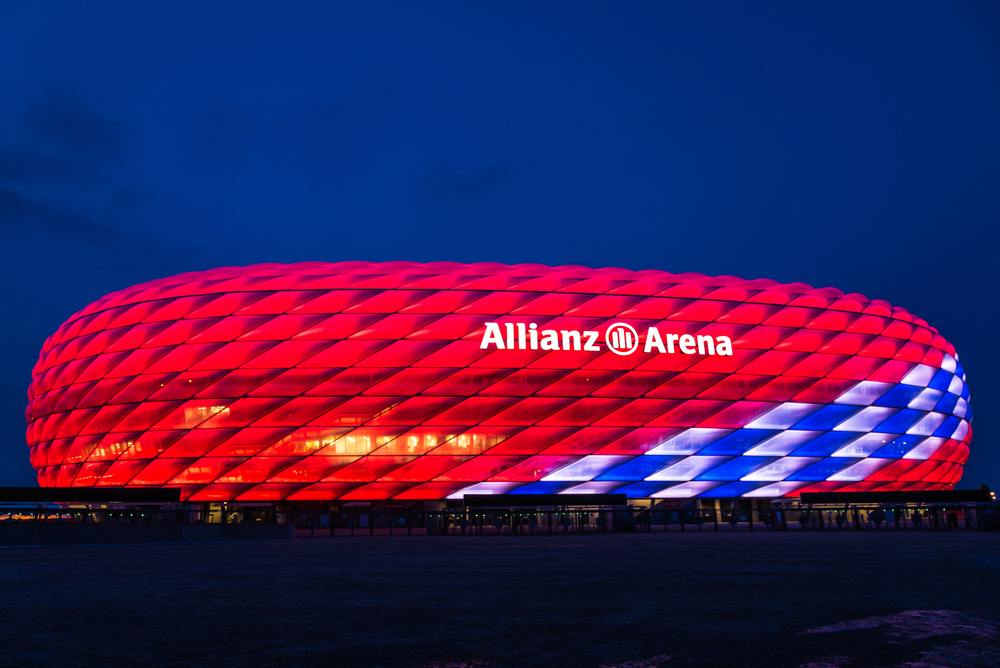
— Photo by anahtiris
Munich’s Allianz Arena changes colors like a giant mood ring, with LED panels that can display any combination imaginable depending on which team is playing. Bayern Munich’s home venue seats 75,000 people in comfort that rivals luxury hotels, with sight lines so good that even the highest seats feel connected to the action. The beer gardens surrounding the stadium serve traditional Bavarian food that’s worth the trip even without a match to attend. This place proves that German engineering extends far beyond just making great cars.
Yankee Stadium
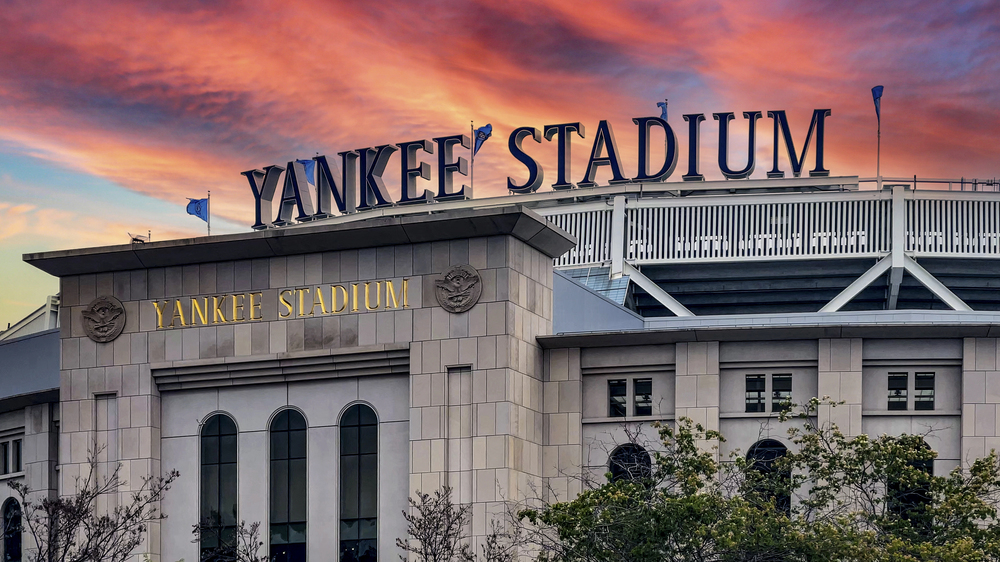
— Photo by Lifes_Sunday
New York’s Yankee Stadium carries the weight of baseball history like no other venue, with Monument Park honoring a century’s worth of Yankee legends. The short right field porch has launched thousands of home runs that might have been routine flyouts elsewhere, creating drama on every swing. This isn’t the original Yankee Stadium where Babe Ruth played, but the new version captures that same intimidating atmosphere for visiting teams. The subway ride from Manhattan puts you right at the front door, making it incredibly accessible for tourists.
San Siro
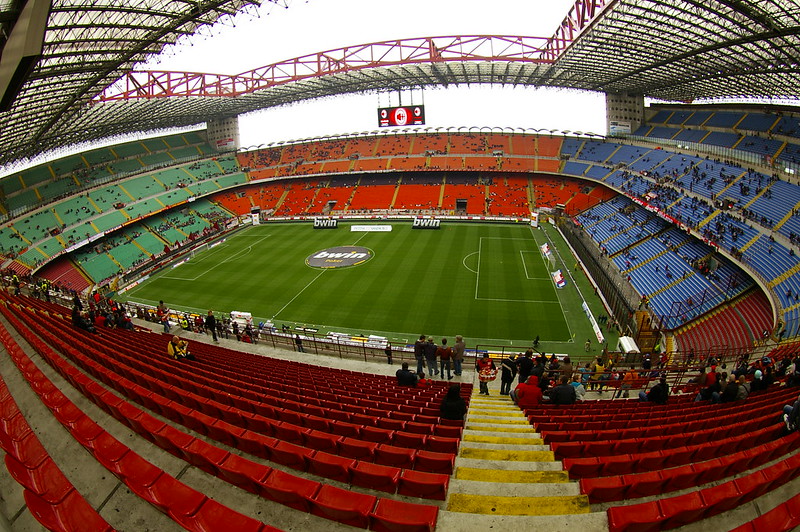
Milan’s San Siro serves as home to both AC Milan and Inter Milan, creating a level of passion that borders on religious fanaticism when these crosstown rivals face each other. The stadium’s distinctive spiral ramps and towering structure make it look like a Roman colosseum designed for modern gladiators. On match days, the surrounding area fills with fans wearing red and black or blue and black, creating a visual spectacle before you even enter the venue. The acoustics here amplify crowd noise in a way that can literally give you goose bumps during crucial moments.
Rungrado 1st of May Stadium
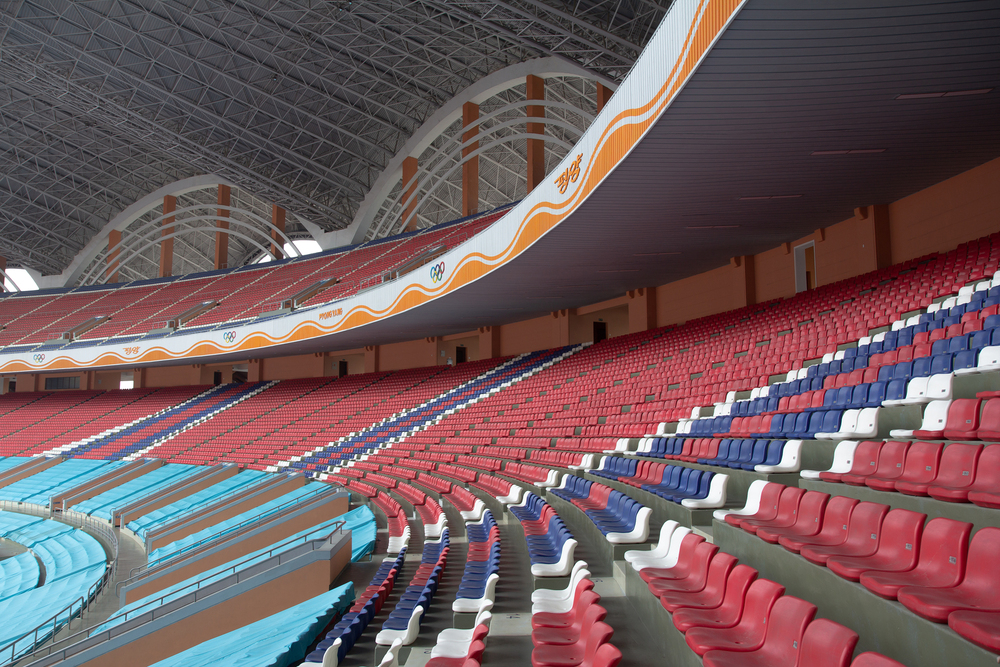
— Photo by boggy22
North Korea’s Rungrado Stadium in Pyongyang technically seats 150,000 people, making it the largest stadium in the world by capacity. This venue hosts the Mass Games, a choreographed spectacle involving thousands of performers that creates human mosaics visible from space. Getting here requires significant planning and a guided tour, but the experience offers a glimpse into a culture most people never see. The stadium’s flower-like design from above creates one of the most unique architectural profiles in sports.
AT&T Stadium
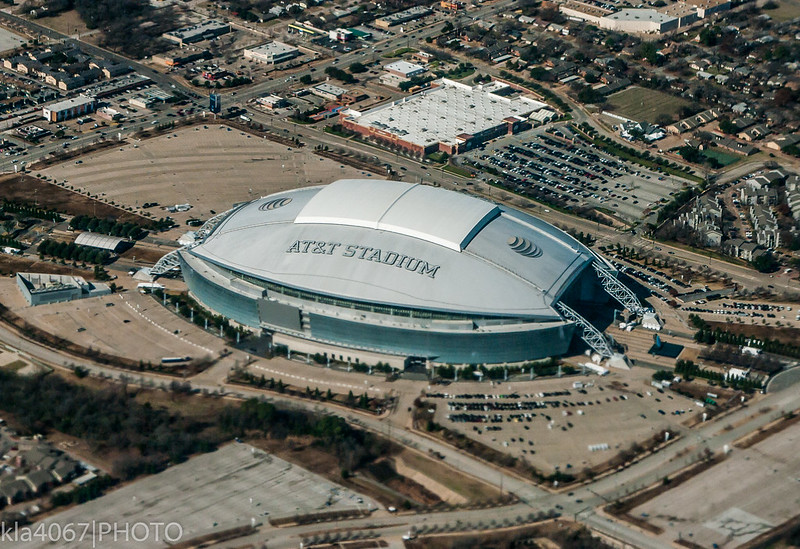
Dallas’ AT&T Stadium, known as Jerry World to locals, features a retractable roof and the world’s largest high-definition video screen hanging over the field. This venue cost over a billion dollars to build and shows it in every detail, from the art collection in the concourses to the luxury suites that rival five-star hotels. The stadium tours here feel more like visiting a modern art museum that happens to host football games. Even people who hate the Dallas Cowboys usually admit this place is pretty impressive once they see it in person.
Lord’s Cricket Ground
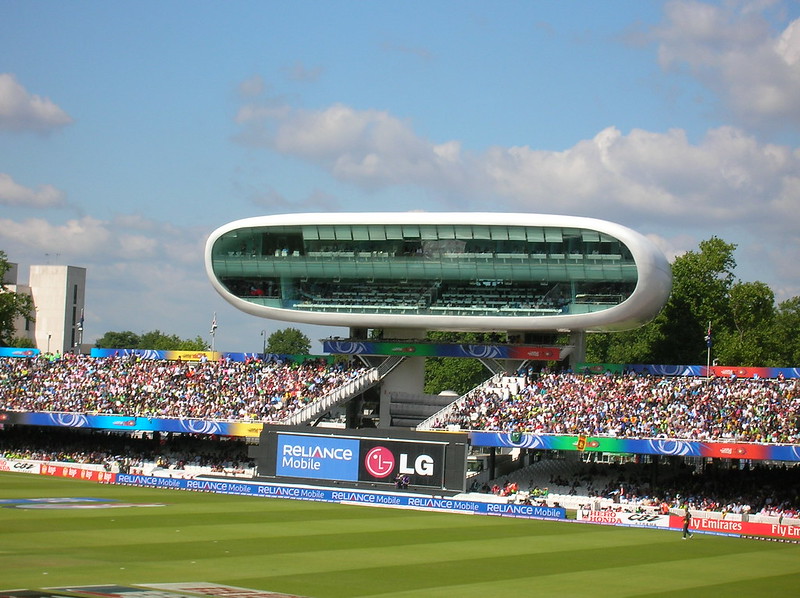
London’s Lord’s Cricket Ground holds the title ‘Home of Cricket’ and maintains traditions that date back over 200 years. The famous Long Room, where members watch matches in jackets and ties, creates an atmosphere of refined sporting culture that’s becoming rare in modern sports. This venue hosts cricket’s most prestigious matches, including the final of the Cricket World Cup. The museum here contains the original Ashes urn, the tiny trophy that England and Australia have been fighting over since 1882.
Where Sports Meet Soul

— Photo by A.Paes
These stadiums prove that the best travel experiences often happen in places where local culture reaches its most intense expression. From Maracanã’s samba-infused celebrations to Lambeau Field’s frozen tundra traditions, these venues offer windows into what communities value most deeply. While Instagram might be full of sunset photos from exotic beaches, the memories that stick with you often come from being part of 80,000 people sharing the same emotional roller coaster. The next time you’re planning a trip, consider building it around one of these temples to human passion — your passport might not show the stamp, but your heart definitely will.
More from Travel Pug

- 20 Best Beach Towns in the Carolinas
- 13 Destinations Where Tourists Regularly Regret Their Trip
- 20 Things You Actually Get in First Class
- 20 Small Airports With Aviation Museums
- 20 Places in the U.S. That Are Perfect for a Reset Trip
Like Travel Pug’s content? Follow us on MSN.
